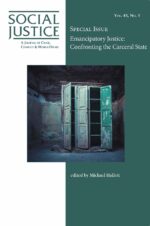Description
Grassroots Peacemaking: The Paradox of Reconciliation in El Salvador
This article challenges the premises of “reconciliation” for state-led processes that reunites post-conflict societies. Based on ethnographic research in El Salvador, it is argued that such efforts entail condemning human rights violations and celebrating the transition to peace, yet overlook socio-economic disparities. The result is a rejection, by many ex-combatants and others intimately affected by the conflict, of “reconciliation” efforts implemented through the 1992 Salvadoran Peace Accords. This dismissal is not a reaction to the concept per se, but rather to the top-down nature and understandings of these state-led efforts. This dynamic has engendered alternative coexistence practices that the author terms “grassroots peacemaking.”
reconciliation, democracy, human rights, transitional justice, post-conflict, social memory, grassroots peacemaking, justice, El Salvador, Central America
Citation: Social Justice Vol. 41, No. 3 (2014): 69-88



Reviews
There are no reviews yet.